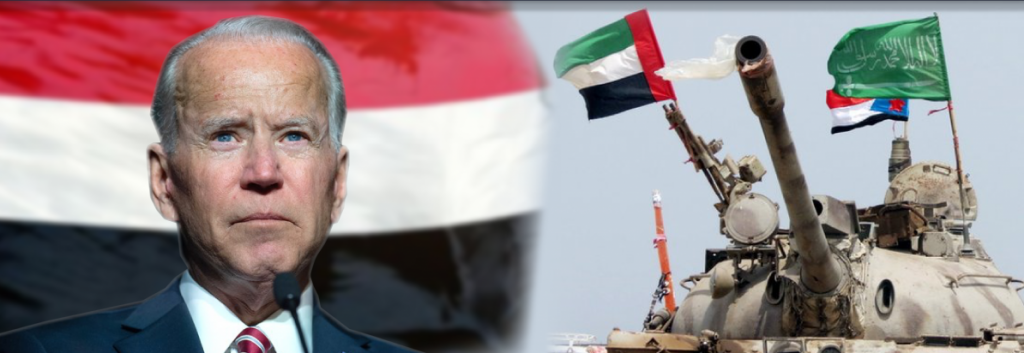
The President of the United States, Joe Biden, will have an opportunity to make progress toward his aim of ending the war in Yemen during his visit to Saudi Arabia next month. Unlike his predecessors, President Biden has made ending the war a primary priority from the start of his administration. As such, he may put pressure on Saudi King Salman and Crown Prince Mohammad bin Salman in Jeddah to do more, such as end the embargo on northern Yemen and cement the ceasefire.
The Biden team has been highly active in brokering a ceasefire, the first since 2016. Initially effective in April, it has been extended through August. An unlimited renewal is now required.
The Saudis are desperate to repair their reputation after the war and the murder of journalist Jamal Khashoggi, and Biden holds a lot of sway with them. The greatest approach to improve your image is to improve your policy, as the Economist put it recently.
U.S. support has been and will continue to be essential to the Saudi combat effort. China is not interested in fighting Iranian meddling in the region and cannot replace our role or American spare parts for F-15 fighter aircraft. As a result, Biden should use the power presented by our security relationships to convince the Saudis to withdraw from Yemen.
Saudi Arabia has come to realize, somewhat belatedly, that the war in Yemen is a drain on its finances while costing Iran little to nothing. It has damaged their standing in the eyes of Muslims and Westerners alike. Because of this, Biden has the chance to assist the Saudis in escaping the predicament the crown prince carelessly created for them seven years ago.
Because of the low level of worldwide donations to the World Food Program, they have recently announced a major cut in food aid for Yemen, making support from the Gulf all the more urgent.
The Houthi rebels’ continued siege of Taiz, the country’s third-largest city, is the biggest threat to the cease-fire. The Houthis have proposed allowing access to the city via secondary routes rather than the main highways. A UN compromise proposal was rejected by the Zaydi Shia Houthis last week during negotiations in Amman, Jordan. To facilitate the full opening of Taiz, Biden can urge the Saudis to provide incentives.
The strongest incentives would come from the Saudis relaxing their siege of the northern region, which is controlled by the Houthis. The main port, Hodeida, should be able to get more fuel, and food, medicine, and other humanitarian supplies should be able to come in as much as they want. With the end of the fighting, the airport in Sana’a can now be used for commercial flights to Amman, Jordan, and Cairo, Egypt. More flights should be made available for Yemenis in need of medical care if it is opened to other destinations. The war has wrought havoc on Yemen’s already weak healthcare system.
Because of the fighting, hundreds of thousands of Yemeni civilians have died from hunger and sickness. The children of Yemen have been particularly at risk. Humanitarian gains in the tens of thousands can be realized if the war is brought to an end. Most of Yemen’s food came from Russia and Ukraine, and their war has caused grain prices to rise by up to 35%.
Biden should also ask the Saudis and their allies in the Gulf to pull their troops out of the parts of southern Yemen they control. The Emiratis have Socotra and Perim, while the Saudis are in the Mahra governorate near Oman. The Saudi-backed new provisional administration established in April to replace Abdu Rabbu Mansour Hadi’s weak government should be given full control of this area. Unfortunately, the reunification of Yemen is not on the horizon, but the country should be able to regain control of its territory from outside aggressors.
As part of his visit to the country. President Biden will meet with Gulf Cooperation Council heads. Seven years ago, all of them except Oman participated in the Saudi-led operation in Yemen. The war has hurt Yemen’s infrastructure, and the president can try to get them to do more to fix it. The port of Aden, which is not under Houthi control, should be the target of a significant improvement project.
An Iraqi delegate will also be present in Jeddah. To ease regional tensions and repair Saudi Arabia’s severing of diplomatic ties with Iran, Iraq has been holding meetings between the two countries. In Baghdad, Oman is participating in the process. Biden would be well to support this effort since it serves the interests of the United States.
To put it simply, the Houthis represent a challenging component of the situation. Since the Iraq invasion, they have been fiercely anti-American; they have close ties to Iran and Hezbollah, and they are notoriously difficult to negotiate with. Still, they won’t be going anywhere anytime soon. As much as 80% of the country’s population lives in areas controlled by the rebels, therefore reopening Yemen’s economy to the world will help encourage a more flexible Houthi rule there.


